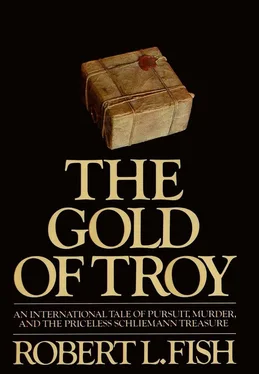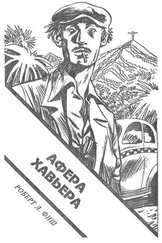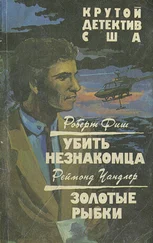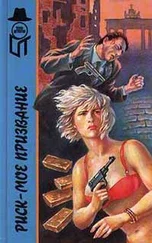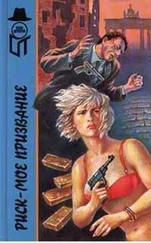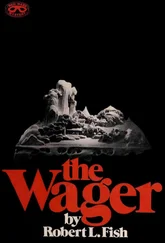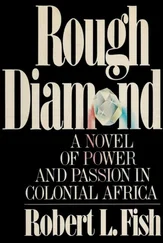“What on earth happened to you?”
“A car accident,” Gregor said lightly, and waved the matter away as being minor, principally because he did not want to remember it. Then he seemed to realize who was in the room with him. To Ulanov’s complete amazement, rather than show anger, Kovpak smiled at him broadly, and then winced as the movement pulled at the bandage on his cheek. “Serge! Just the man I was wishing I could see, but I never dreamed I would! Maybe if you wish for something hard enough, your wish is answered! This is wonderful!” Gregor suddenly frowned. “But what on earth are you doing here?”
Why Kovpak would have been wishing to see him was one more mystery in an affair whose mysteries did not seem to have any great importance. Ulanov would have preferred to ask after the accident that seemed to have ripped Gregor’s clothes even more than his body, but it was apparent the man didn’t want to talk about it. The white-haired agent decided to get the explanation of his role over with quickly.
“I’ve been following you and the girl,” he said, and walked over to the bed, dropping down on it and fishing out a cigarette. He waited for the explosion. He really didn’t know Kovpak well enough to anticipate his reactions, and Kovpak was not only considerably younger than he was, but twice as husky. And as far as he knew, possibly as well trained in the art of self-defense. But instead of anger, Kovpak exhibited nothing except slight puzzlement.
“Following us? Then you saw the accident?”
“Not following you every minute,” Ulanov said a bit sourly. “Following you from London to East Berlin, to Rostock, to Copenhagen.”
“But why?” Kovpak shrugged. “Never mind. It doesn’t make any difference—”
“It does make a difference,” Ulanov said quietly. “In going from London to Berlin, especially after you told me a story about your motives for the trip that I didn’t believe, you made me suspicious. And particularly when you went to Bad Freienwalde, it seemed to me you were obviously trying to trace the Schliemann treasure. And the treasure and its connection with the CIA is, after all, my assignment. I thought if I followed you, I might learn something. Instead,” he said bitterly, remembering the tongue-lashing he had received that afternoon, “all I got was the worst reprimand of my life for chasing after a love-sick scientist, wasting my time—”
“You weren’t, you know.”
“—and I’ll be lucky if I’m only reduced one grade and not sent back to a desk job decoding messages from our embassies around the world complaining about the quality of the vodka sent them in the diplomatic pouches!”
“I said, you haven’t been wasting your time.”
“At my age, too!” Ulanov went on, unhearing. “I had hoped to retire on a pension in a few years, come up to Peterhof and buy a small dasha, nothing impressive, although to tell the truth not many of them are impressive around there, mostly shacks with flattened gasoline tins to cover the holes in the roof and keep out the rain. I thought I might get in a little fishing in the summer—”
“Serge! Serge! ”
“—in the winter maybe—” The man seemed to finally realize he was being addressed. He looked up, the cigarette still unlit, and then remembered to bring out a match and light it. He looked around the room and then back to Kovpak. “I’m sorry. My troubles aren’t your fault. What have you been up to, Gregor?”
Kovpak grinned almost savagely. “Serge, do you know how to tap a telephone?”
“Tap a telephone?” Ulanov looked startled by the change in the conversation. He also looked disappointed. “You’re having trouble so soon? You don’t trust her? I wondered at the separate rooms, but it was no business of mine. But tap a telephone in a hotel—?”
“No, no! Not in a hotel! Not Ruth’s telephone, for heaven’s sake! In a house, or an apartment, I don’t know which yet, but I will, tonight.” He sat down and pulled his chair toward the man on the bed. “Well, can you do it?”
Ulanov frowned. “What is this all about?”
Kovpak took a deep breath. “Serge, we found it!”
“You found what?”
“The treasure! The Schliemann treasure! It was at the bottom of the sea all these years. A man in a town called Gedser found it when he was diving for his brother’s body. He didn’t know what it was, and he sold it to a professor at the university here, a man named Nordberg, for almost nothing.”
Ulanov was staring. “You found the Schliemann treasure?”
“Yes,” Gregor said simply. “We found it.”
“It hasn’t been in Langley all these years?” The major was trying to comprehend the enormity of what Kovpak was saying. If this was true, then Langley could not be the one auctioning off the treasure. It also meant, of course, that their security had never been breached. And to demonstrate one or the other — or neither, by implication — had been his assignment. If what Kovpak was saying was true, and could be proven, he might well wriggle off Vashugin’s hook.
“It hasn’t been anywhere except on the bottom of the sea, I tell you, for the past thirty-five years,” Gregor said a bit impatiently. “And no, we haven’t located it physically, but if you know how to tap a telephone, we soon will!”
Ulanov put aside consideration of his own problems to concentrate on what Kovpak was saying. “I assume it is the professor’s telephone you want to tap. Why?”
Kovpak leaned forward. “Ruth McVeigh is a lovely woman and a brilliant one,” he said, “but she doesn’t know much about university professors in Europe. There is absolutely no way a professor in a university here can possibly finance anything as expensive as this auction. Just getting the packages delivered to the various museums around the world would have cost more than this Professor Nordberg probably earns in a year. And the means of handling the actual auction, as well as the means of guaranteeing the delivery of the treasure to the high bidder, as well as making sure that the payment is received without revealing the identity of the person being paid — well, all of these things cost money. And money, I’m sure, beyond the amount this Professor Nordberg is apt to have.”
Ulanov felt his hopes plummeting. “You mean, then, that this professor does not have the treasure?”
“I mean, I doubt he has it in his possession,” Kovpak said. “I’ve thought about this all afternoon driving back. He must have a confederate, someone with money, and undoubtedly this confederate has the treasure—”
“A confederate?”
“Serge, you aren’t thinking! He had to have someone with enough money to finance this auction. Anyone putting up the money isn’t going to take any chances with the treasure. He’s going to keep it where he can look at it, where he knows where it is.”
Ulanov nodded. “I see. And if we can frighten this Nordberg sufficiently, he’s going to telephone this confederate—”
“If I can frighten him sufficiently,” Kovpak said flatly. “You’re going to be in the basement, or wherever, listening in with your tapping equipment. If you know how to do it,” he added a bit unkindly.
“Tapping a telephone is no great chore,” Ulanov said, waving away the problem. “We have the equipment in the Bredgade, in our — well, let me simply say the equipment is available. And I do know how to do it. I thought everyone did.” He paused. “When will you know where the professor lives?”
Kovpak reached for the telephone directory and began leafing through the pages. He ran a finger down a column and looked up. “Does one need to be a trained KGB man to use a telephone book?”
“In some cities it helps,” Ulanov said with a straight face. “In Rio de Janeiro even that doesn’t help.” He looked over Kovpak’s shoulder. “Nordberg, Arne, Prof. Linnesgade Number 16. That’s near the center, on the Israels Plads. Not far from the university. Those would be apartments.” He smiled and came to his feet, putting out his cigarette. “I’ll go and look the place over now. Tomorrow, unfortunately, their telephones will require some checking. I’ll have a man with me who speaks Danish to answer any silly questions, of which I’m sure we’ll get a ton—” He suddenly frowned. “What if he isn’t home tomorrow?”
Читать дальше
